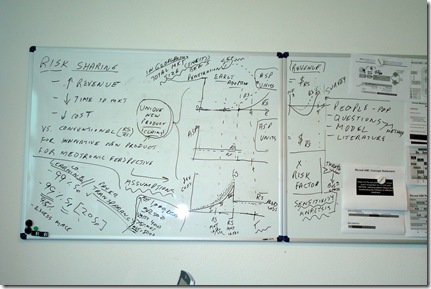The Economist has a special series of articles in their April 10 issue about Mobility. Rather than reviewing emerging technologies and business models, they examine the apparent impact of wireless networks on work-life activities, and conclude that it is leading to a new form of nomadic lifestyle:
"Humans have always migrated and travelled, without necessarily living nomadic lives. The nomadism now emerging is different from, and involves much more than, merely making journeys. The emerging class of digital nomads also wander, but they take virtually nothing with them; wherever they go, they can easily reach people and information.
Digital nomadism will liberate ever more knowledge workers from the cubicle prisons of Dilbert cartoons. But the old tyranny of place could become a new tyranny of time, as nomads who are “always on” all too often end up—mentally—anywhere but here (wherever here may be). As for friends and family, permanent mobile connectivity could have the same effect as nomadism: it might bring you much closer to family and friends, but it may make it harder to bring in outsiders. Politically, nomadism promises the heaven of new freedom, but it also threatens the hell of constant surveillance by the tribe."
I’m still thinking about how true this is of my own life, and about the implications for how I think about what I will do in the future.
On the one hand, I can’t imagine yet how I would do collaborative work as effectively if I had to depend on Blackberry’s. The rich ideas on the whiteboard, above, resulted from a few people standing around writing and erasing, arguing and ‘aha-ing, until a complete plan took shape. It was social / emotional more than it is process / rational. In contrast, I struggled to reach agreement on a model structure with a health economist in Lausanne yesterday. I drew finger pictures in front of the telephone receiver, futilely trying to communicate visual diagrams: we shot e-mail drawings back and forth while we talked, but we both had to withdraw to sort our ideas separately in the end.
At the same time, it is true that my network and, indeed, my closest colleagues and friendships, now extend over a vast geography. I feel like I do have a close and rich interactions with them that I never had in the days of mailed letters and occasional telephone calls. The wireless and network technologies enable new shared, social spaces that give immediate and visual ability to share experiences, thoughts, and plans.
It makes me think that perhaps I haven’t gone far enough: that I am still trying to live with one foot in traditional work-life styles and another tentatively feeling into the future.
‘Thoughts I want to think about and return to…

